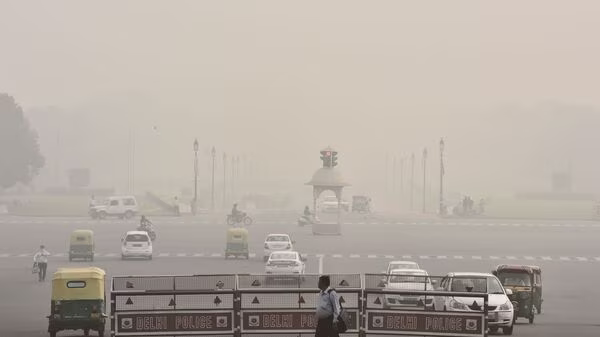Delhi and NCR Activate Stage IV Anti-Pollution Plan as Air Quality Worsens

Image Source: Mint
The recent air quality crisis in Delhi and the National Capital Region (NCR) has prompted the activation of the final stage of the Centre’s anti-pollution plan. This critical step comes as air quality continues to deteriorate, posing serious health risks to residents.
Under Stage IV of the plan, several stringent measures have been enforced, including:
Ban on Non-Essential Truck Traffic: There is a complete ban on non-essential truck traffic entering Delhi. Only trucks carrying essential commodities or providing essential services, including LNG, CNG, and electric trucks, are permitted.
Restrictions on Vehicles: Light Commercial Vehicles (LCVs) registered outside Delhi, except for EVs, CNG, and BS-VI diesel vehicles, are prohibited from entering Delhi unless they are carrying essential goods.
Construction Ban: Construction and Demolition (C&D) activities in linear public projects, such as highways, roads, and power transmission, are prohibited.
Education Measures: The NCR state governments and the Government of National Capital Territory of Delhi (GNCTD) may decide to discontinue physical classes for certain school grades and transition to online learning.
Work-From-Home: Public, municipal, and private offices are allowed to operate at only 50 percent of their workforce, with the remaining employees working from home. The central government may also consider work-from-home for its employees.
Additional Measures: State governments have the flexibility to implement further emergency measures, including the closure of colleges and educational institutions and restrictions on non-essential commercial activities.
The deteriorating air quality in Delhi is attributed to unfavorable meteorological conditions and an increase in stubble-burning incidents in neighboring states. This crisis isn’t isolated to Delhi alone, as several cities in Haryana, Rajasthan, and Uttar Pradesh are also grappling with hazardous air quality.
These stringent measures aim to address the immediate pollution issue and protect the health and well-being of the residents in the region. The enforcement of these actions underscores the severity of the air quality crisis and the need for comprehensive efforts to combat pollution in the long term.
Team Profile

- News Writer
- Harshit Tokas is a Political Science and International Affairs Post-Graduate with a passion for understanding and analyzing complex political landscapes. Skilled in research, data analysis, and policy development. Eager to contribute his knowledge and insights to drive positive change.
Latest entries
 English1 December 2023Ambati Rayudu Backs Ruturaj Gaikwad as a Future Leader of Indian Cricket
English1 December 2023Ambati Rayudu Backs Ruturaj Gaikwad as a Future Leader of Indian Cricket English1 December 2023Changing Tide: Pujara and Rahane Omitted from South Africa Tour Squad
English1 December 2023Changing Tide: Pujara and Rahane Omitted from South Africa Tour Squad Defence1 December 2023India Greenlights Procurement of Advanced Military Assets in Multi-billion Defence Upgrade
Defence1 December 2023India Greenlights Procurement of Advanced Military Assets in Multi-billion Defence Upgrade English1 December 2023Delhi Government Pushes for Completion of Asia’s Largest Wastewater Treatment Plant
English1 December 2023Delhi Government Pushes for Completion of Asia’s Largest Wastewater Treatment Plant









